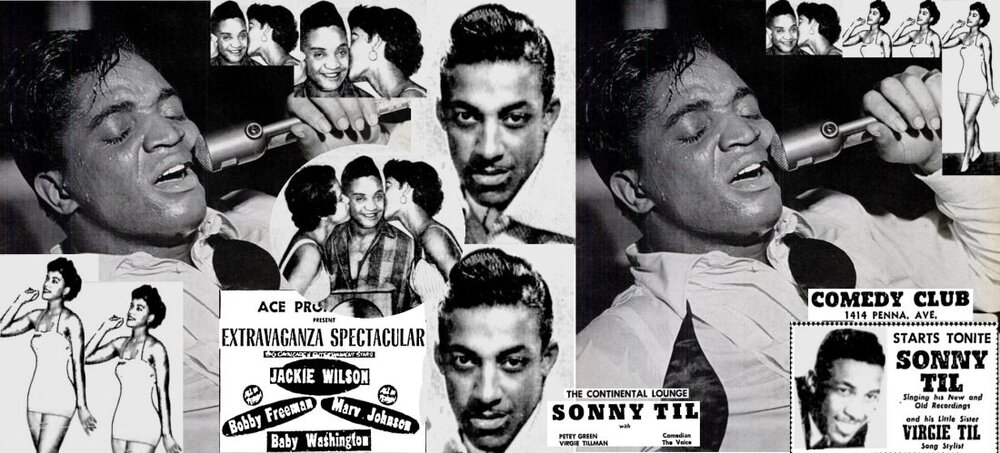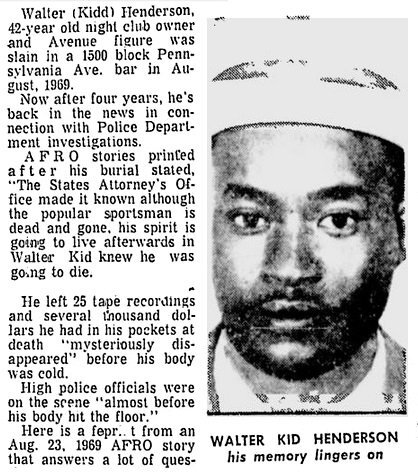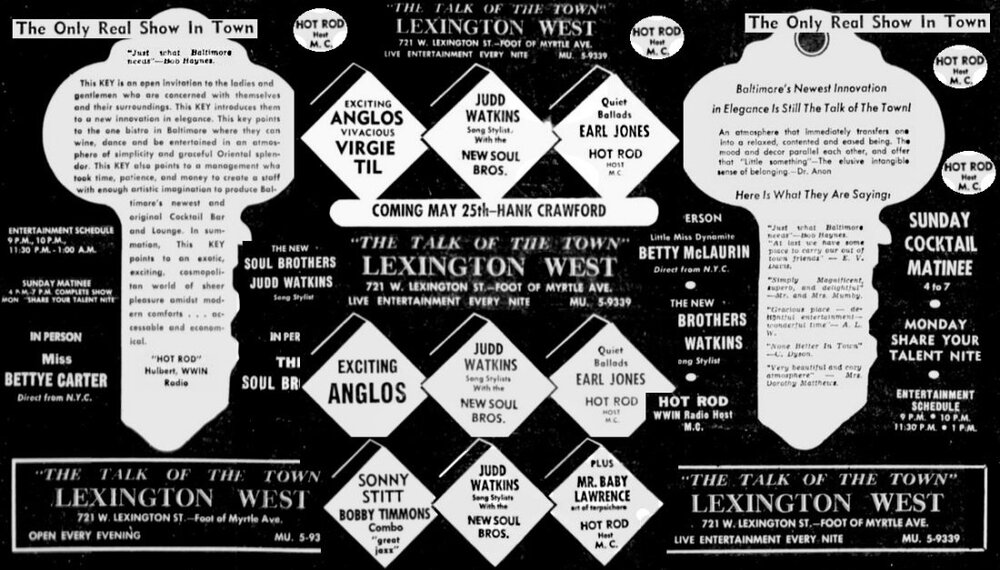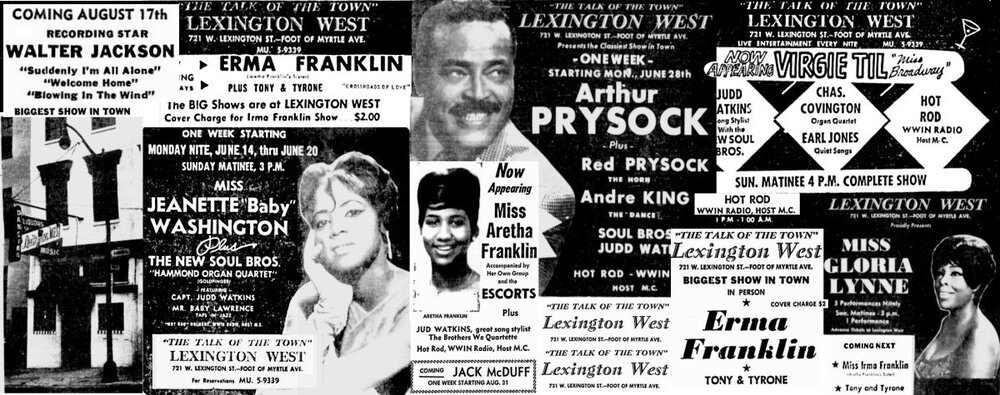- Replies 7
- Views 1.5k
- Created
- Last Reply
Most active in this topic
-
Roburt 5 posts
-
Ady Croasdell 1 post
-
Rick Cooper 1 post
Most Popular Posts
-
John it was far from "almost certain" the artists would be cheated out of their royalties. Many record companies kept meticulous records and paid every cent owed. Many artists have short memories and
-
As Virgie Til seems to figure in a major way on this thread, thought I'd post this here ........... Virgie had hooked up with 'her brother' Sonny Til by 1960 but it still didn't stop her from 'l
-
By the way, in case you're interested ............... back in 1960 ............... Virgie's measurements were 36 - 24 - 42 and she was 5' 7" tall (sounds like she had quite a booty on her).











Back in the 60's, trying to establish a career as a soul singer wasn't an easy path.
Of course you needed a good voice, decent co-ordination, flair in your dress sense and a decent business head.
You also had to steer clear of too much booze and of drugs. If you managed to land a recording contract, it was quite common to be cheated out of any record royalties. So if you didn't actually write the songs you cut, then little money would be coming your way from that branch of the biz. Even playing live gigs had many pitfalls. You had to be signed by a booking agent and lots of those would cheat you out of a lot of your performance fee. You had to cozy up to club owners to ensure they booked you at their venue. You had to find an arranger to write charts for you and a backing musician(s) to support you on live dates. You had to ensure you were actually paid your fee (best done before you performed). You had to do 'free gigs' for local DJ's and celeb club owners.You had to hope that the venue's house band musicians could play well and that they knew your songs. Some of the venues would be far from home, so you needed decent and reliable transport. Some clubs were in very dodgy areas, so getting safely to & back from them could be 'interesting'. Many clubs had their fair share of bad customers (mobsters, pimps, ladies of the night, drunks, angry guys with guns, etc.). You had to have the stamina to perform 3 /4 / 5 times a night for up to an hour each show. You had to be prepared to perform up to 6 nights a week at each venue and then go out plugging your wares on the 7th day.
Then if you were a woman, even more obstacles had to be negotiated. Your booking agent, club owners, club managers, club bookers, members of the house band and the like might come after you looking for favours. If you had family, you had to find someone responsible to look after the kids, younger brothers & sisters, elderly mother, etc.
Over and above all that, you never knew what was really going on 'behind the scenes' at any of the clubs you played.
In Baltimore in 1965, a posh new club, the Lexington West was opened. The place immediately started to book top acts and so attracted a big crowd most nights of the week. However within 8 months the place had gone.
The Lexington West (721 West Lexington Street) was located across from the Lexington Terrace Projects in Baltimore. The club booked a good number of top soul acts in 1965 (Aretha Franklin, the Escorts, Baby Washington, Walter Jackson, Virgie Til, Arthur Prysock, Erma Franklin, the Anglos, Gloria Lynn, etc). The place had been opened in early April 1965 but was gone before the end of the year. In September 1965 the club's manager, Eddie Tucker (37), had been arrested for possession of drugs. He was convicted of narcotics offences in December by which time the club was already closed and padlocked. The club's liquor license had been granted in tucker's wifes name and it had been suspended while he appealed his conviction. By the time his appeal hearing came around, in late January 1966, both he and his wife had skipped town.
So as a singer, you just never knew what situations you could be getting yourself into.
Edited by Roburt